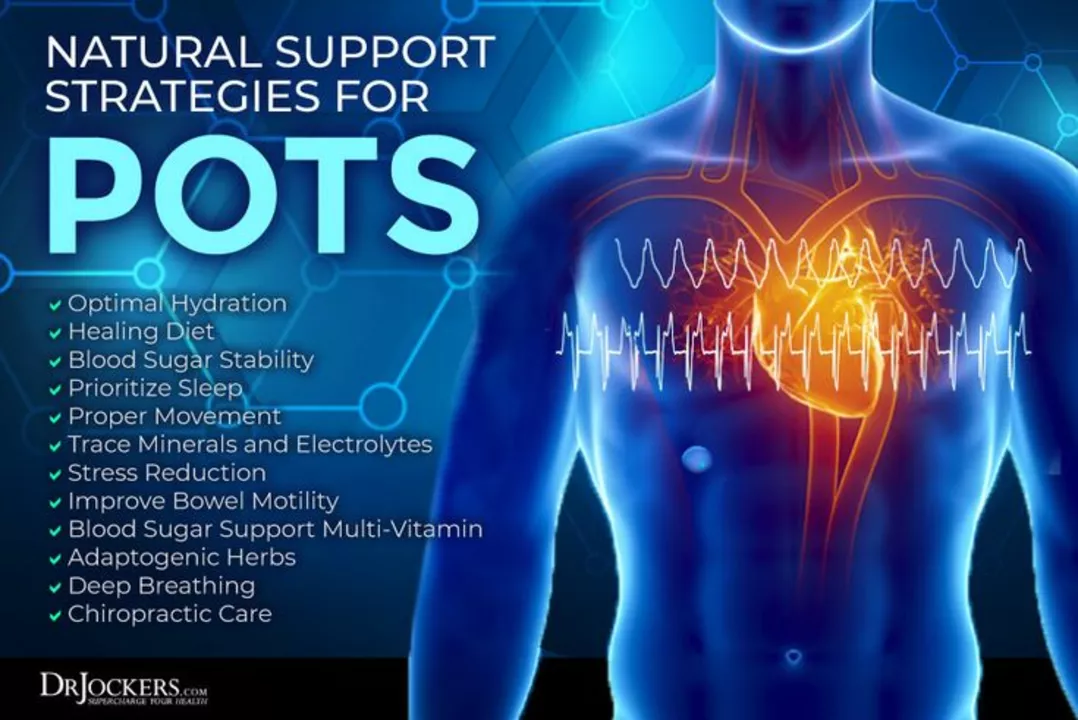Postural Orthostatic Tachycardia Syndrome (POTS) – Quick Guide
If you’ve ever felt dizzy or your heart racing when you stand up, POTS might be the reason. It’s a condition where the heart speeds up unusually after sitting or lying down, and it can make everyday tasks feel like a marathon.
What Is POTS?
POTS stands for postural orthostatic tachycardia syndrome. The main sign is an increase of at least 30 beats per minute in heart rate within ten minutes of standing (or 40 bpm for teens). You might also notice light‑headedness, fatigue, brain fog, or even fainting.
Doctors usually check it with a simple tilt‑table test or by measuring your pulse while you move from lying to standing. Blood pressure often stays normal, which is why the rapid heartbeat is the key clue.
Managing POTS Day‑to‑Day
The good news is many people find relief with lifestyle tweaks and a few meds. Start by drinking plenty of water – up to three liters a day – because staying hydrated expands blood volume and eases the heart’s workload.
Add a pinch of salt (if your doctor says it’s safe) to help retain that fluid. Compression socks or thigh‑high stockings also keep blood from pooling in your legs.
Exercise matters, but go slow. Short, recumbent bike rides or rowing sessions build stamina without triggering symptoms. Gradually increase time as you feel stronger.
If lifestyle changes aren’t enough, doctors may prescribe low‑dose beta‑blockers, fludrocortisone, or midodrine to control heart rate and blood pressure. Always discuss side effects – some people experience fatigue or dry mouth, so finding the right dose can take a few tries.
Sleep quality is another hidden factor. A consistent bedtime routine, cool room temperature, and limiting caffeine after noon help keep your nervous system balanced.
When you feel a symptom flare, sit down, cross your legs, and sip water. Small moves like these can stop a dizzy spell before it turns into a fall.
Many POTS patients also benefit from checking out related articles on our site – for example, guides on safe medication use, managing chronic fatigue, or natural supplements that support blood flow.
Remember, POTS is manageable. With the right mix of hydration, compression, gentle exercise, and tailored meds, you can reclaim daily activities without constant worry.

Can betahistine help with symptoms of postural orthostatic tachycardia syndrome (POTS)?
I recently came across some information about betahistine and its potential benefits for those suffering from postural orthostatic tachycardia syndrome (POTS). Apparently, this medication, which is commonly used to treat vertigo, may help alleviate some POTS symptoms such as dizziness and lightheadedness. The idea is that betahistine improves blood flow in the inner ear, which could potentially stabilize blood pressure in POTS patients. However, it's important to note that more research is needed to confirm these findings. I'll definitely be keeping an eye on this topic and will update you all if any significant developments arise.
April 28 2023